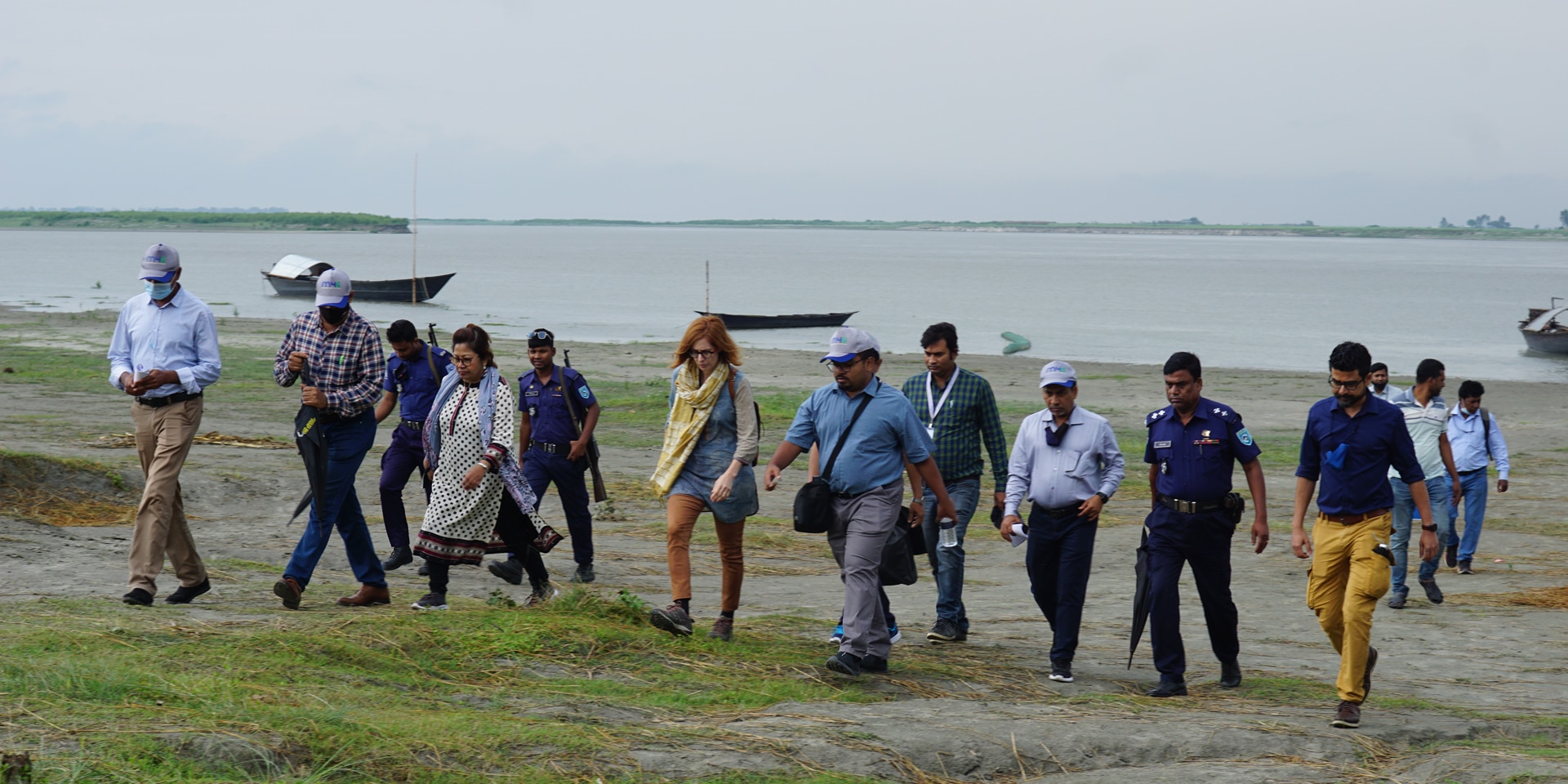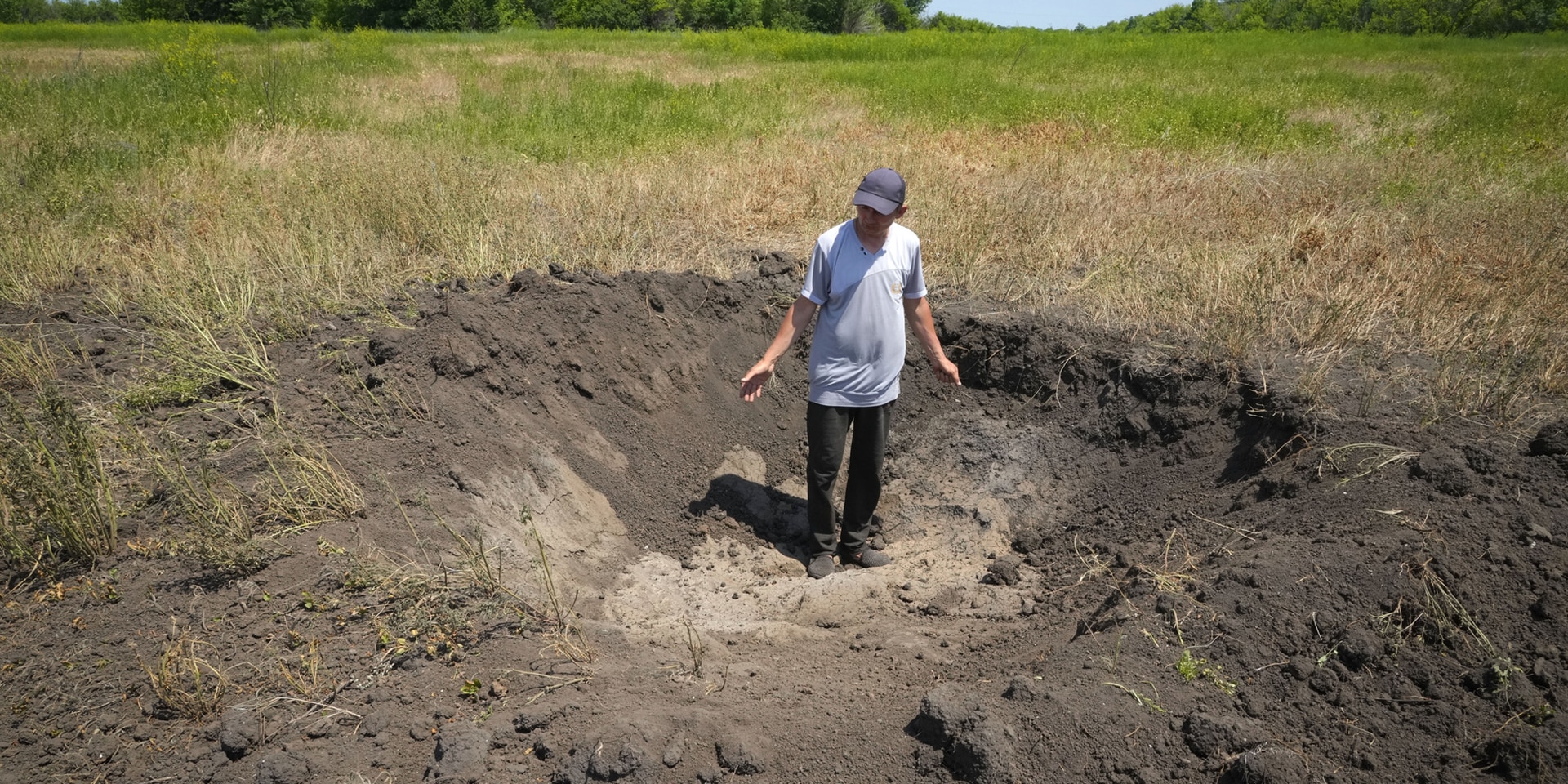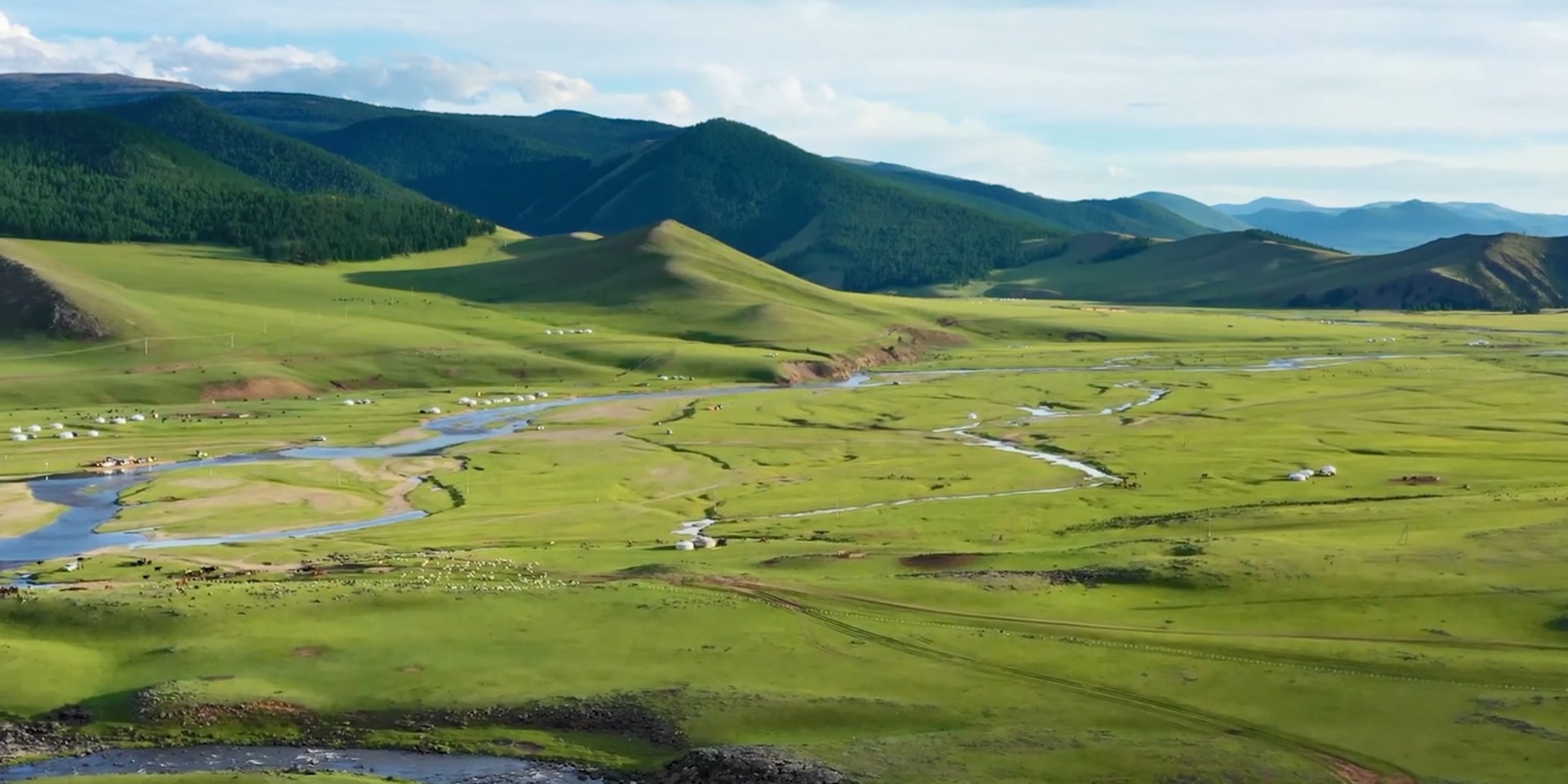Sandro's dream to have his own cheese dairy
Sandro Didebashvili is one of seven students from the Swiss Agricultural School Caucasus in Georgia who visited Switzerland for two weeks, learning about animal husbandry, fodder and cheesemaking. The Swiss Agency for Development and Cooperation (SDC) supports Georgia in agricultural education and training.
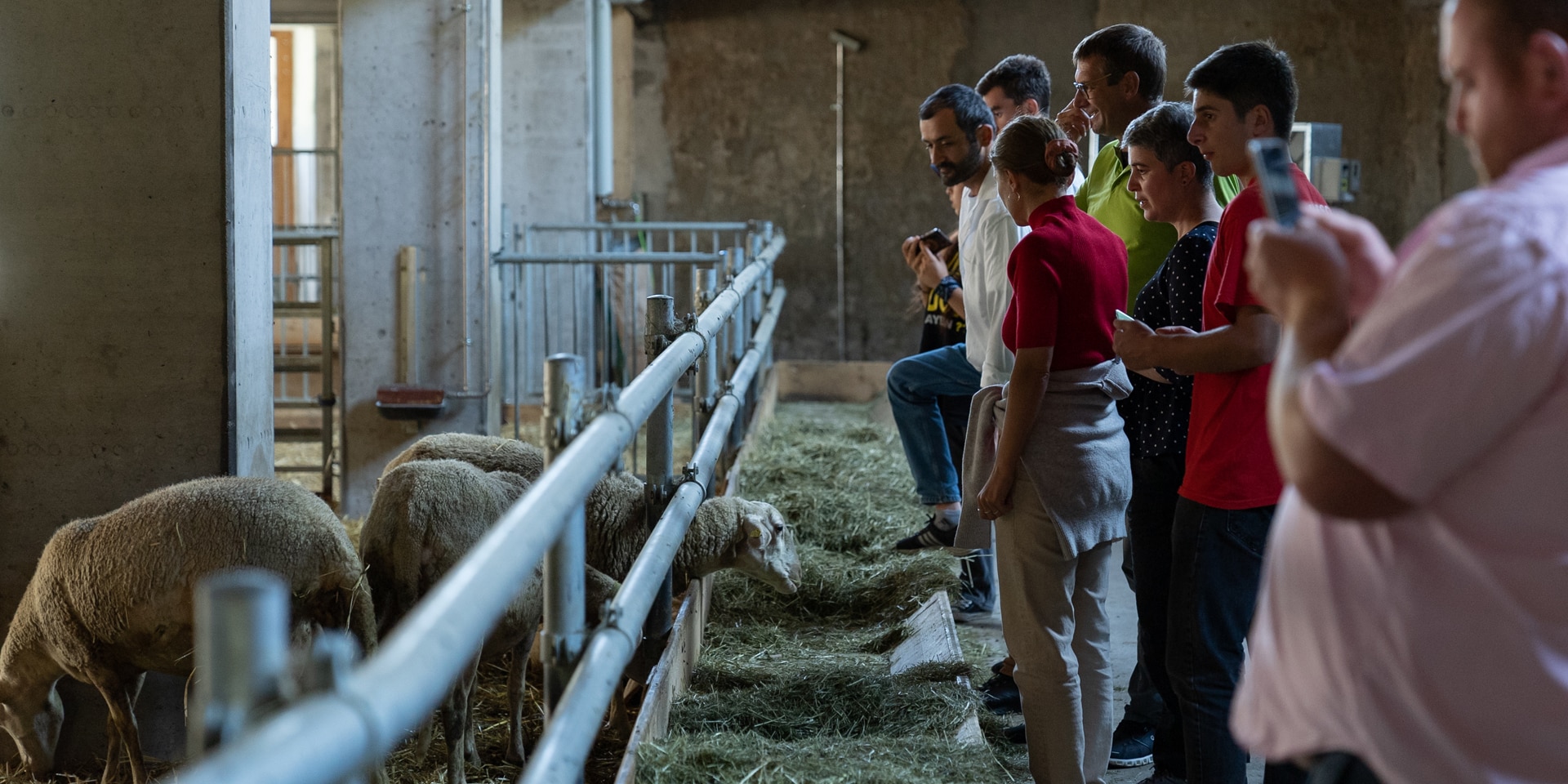
What feed is ideal for sheep and what is the best way to milk them? The class visits a barn near Chur. © SDC
It is one of the last mild summer days in September 2022. The maize in the fields surrounding the Plantahof agricultural school in Landquart, Graubünden, is as high as an elephant's eye. Inside Plantahof, the students are enjoying lunch together in the cafeteria. The cook has served up pasta, strips of meat in a creamy sauce, and broccoli.
Something catches the ear. At a table in the middle of the room, the students are chitchatting away in Georgian, not in the Graubünden dialect spoken in these parts. These seven students are from the Swiss Agricultural School Caucasus. They have come from Georgia to Switzerland for two weeks to learn about Swiss agricultural technology and acquire some savoir-faire at Plantahof and during internships on farms and at cheese dairies.
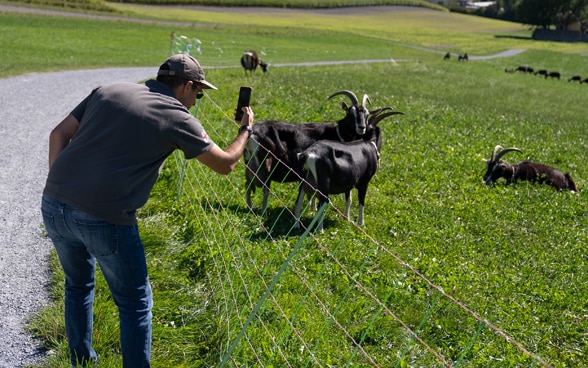
One of them is Sandro Didebashvili, who comes from the Georgian capital Tbilisi. "I like working in the countryside. It's not as taxing there as in the city," he says in fluent German. He spent a few years in Germany a while back, but now he sees great potential in agriculture in his home country. He speaks of his dream to open his own cheese dairy there one day.
Sandro Didebashvili's training at Plantahof is part of a larger Swiss vocational training campaign in Georgia. Switzerland has been supporting the South Caucasus in its economic and democratic development for over thirty years. Developing the value chain in rural areas is a top priority here. Many farmers in Georgia still practise subsidiarity farming, i.e. their farm output is primarily intended for their own consumption.
"Improving agricultural production methods and training in the agricultural sector are essential for combating poverty in Georgia," says Danielle Meuwly, who heads the Swiss cooperation office in Tbilisi. In Georgia, up to 40% of the population works in agriculture, but the agricultural sector makes up only 8% of the country's economic output.
"Switzerland has a lot of expertise and a vocational training system well adapted to agriculture in mountainous areas," says Meuwly. Meuwly explains that the SDC's goal is to spread this knowledge to Georgia to create opportunities and jobs there.
She specifies that the SDC's agricultural projects primarily target the rural population in the sometimes isolated mountainous regions, adding that the agency takes care to design projects gender-inclusively and to involve men and women equally. "In Georgia, there are many women who own a few cows and sell some milk or make cheese," Meuwly says. The fact that they benefit from Swiss cooperation is also shown in the evaluation of Switzerland's engagement to date: in the South Caucasus (Armenia, Azerbaijan and Georgia), Swiss cooperation projects created 1,150 jobs for women between 2017 and 2021.
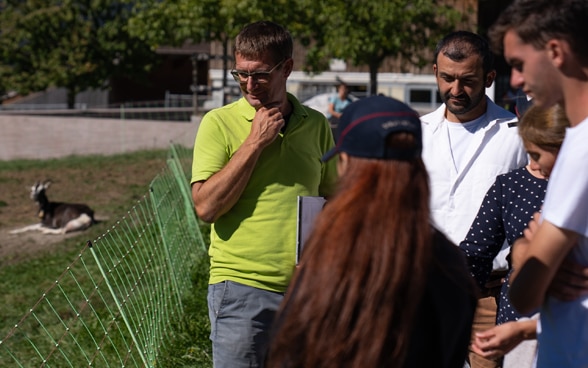
Back to the canton of Graubünden: After lunch Sandro and his classmates get moving again, heading to Chur now. The afternoon holds in store for them a visit to the Waldhaus, a Plantahof training farm, where the class will learn more about sheep and goat breeding. They are scheduled to observe the animals being milked later on. And in the evening, the Georgians will be treated to a fondue dinner on Alp Parpan.

